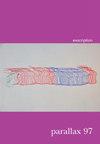恩戈梅尼,耶稣堡:迪戈的家,而不是葡萄牙的堡垒1
IF 0.1
4区 社会学
Q4 CULTURAL STUDIES
引用次数: 0
摘要
Ngugi wa Thiong ' o认为,口头材料在历史上受到的较低尊重成为“将一些文化从历史和复杂思想中驱逐出去的基础,把它们扔进地狱。”“这篇论文超越了关于口语和读写能力之间的紧张关系的讨论,采取了一条更有成效的道路,问,当以前隐藏、忽视和压抑的口头知识被发掘出来时,社区形成的理论会发生什么?”更明确地说,这篇论文建立在安德森的想象共同体概念的基础上,他将“国家(作为)一个想象的政治共同体”,因为“即使是最小的国家的成员也永远不会认识他们的大多数成员,见到他们,甚至听过他们,但在每个人的心中都生活着他们共同的形象。”在安德森的构想中,国家被想象成一种单一的、占主导地位的语言,即教学和写作的语言。例如,在欧洲,直到16世纪,拉丁语一直是“泛欧高级知识分子的语言”。然而,到18世纪末,由于读者的需求,英语已经成为“世界上最杰出的帝国语言”。然而,人们很快就明白了,尤其是在欧洲以外,这将其他方言和它们所承载的想象力拒之门外,这也是本文所要讨论的主题。从文学和口述历史的角度来看,我试图从多语言的角度,通过破坏英语所占据的主导空间,来应用安德森的“想象社区”概念。本文章由计算机程序翻译,如有差异,请以英文原文为准。
Ngomeni, Fort Jesus: A Digo home, not a Portuguese fortress 1
Ngugi wa Thiong’o argues that the lower esteem with which oral material was historically treated became ‘the basis for expelling some cultures from history and complex thoughts, consigning them to a place in hell.’ Moving beyond this much discussed albeit inconclusive debate on the tension between orality and literacy, this paper takes a more productive path, asking, what happens to theories of community formation when previously hidden, ignored, and suppressed oral knowledge is unearthed? More categorically, this paper builds on Anderson’s notion of imagined communities in which he defines ‘the nation [as] an imagined political community’ because ‘the members of even the smallest nation will never know most of their fellow members, meet them, or even hear of them, yet in the minds of each lives the image of their communion.’ In Anderson’s formulation, the nation is imagined in a singular, dominant language which is the language of instruction and writing. For instance, in Europe, Latin was until the 16 century ‘the language of the pan-European high intelligentsia’. By the end of the 18 century, however, English had taken over as ‘the pre-eminent world imperial language,’ in response to the demands of the readership. However, it was soon clear, especially outside Europe, that this locked out other vernaculars and the imaginations they carried, a subject that this paper dwells on. I attempt an application of Anderson’s notion of ‘imagined communities’ from a multilingual perspective by destabilising the dominant space English has occupied, from a literary and oral history standpoint.
求助全文
通过发布文献求助,成功后即可免费获取论文全文。
去求助
来源期刊

Parallax
Multiple-
CiteScore
0.50
自引率
0.00%
发文量
0
期刊介绍:
Founded in 1995, parallax has established an international reputation for bringing together outstanding new work in cultural studies, critical theory and philosophy. parallax publishes themed issues that aim to provoke exploratory, interdisciplinary thinking and response. Each issue of parallax provides a forum for a wide spectrum of perspectives on a topical question or concern. parallax will be of interest to those working in cultural studies, critical theory, cultural history, philosophy, gender studies, queer theory, post-colonial theory, English and comparative literature, aesthetics, art history and visual cultures.
 求助内容:
求助内容: 应助结果提醒方式:
应助结果提醒方式:


